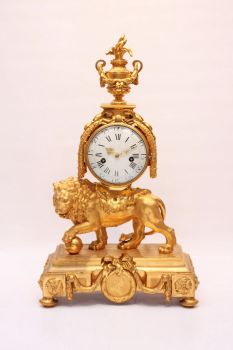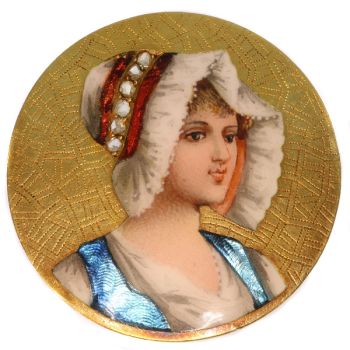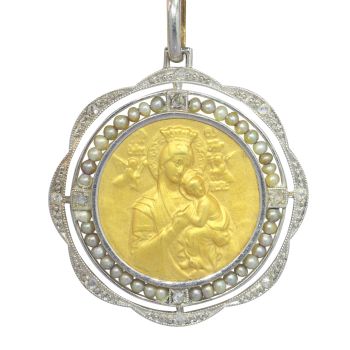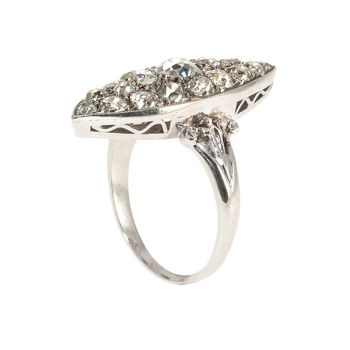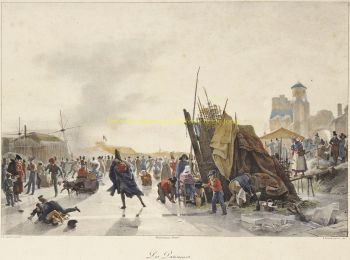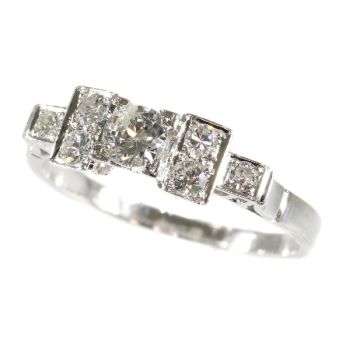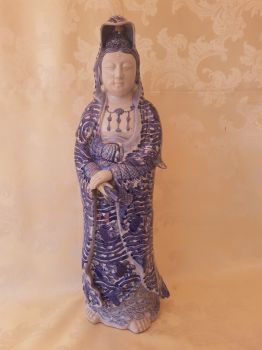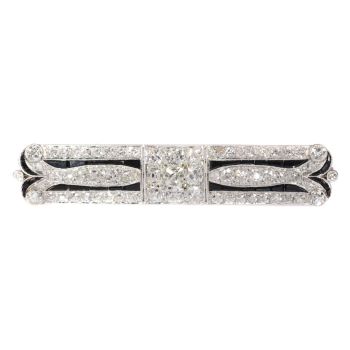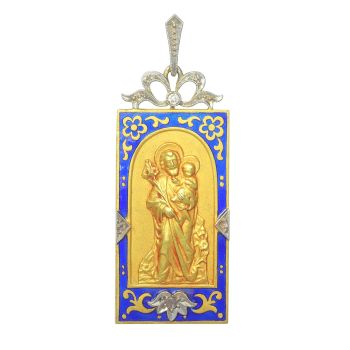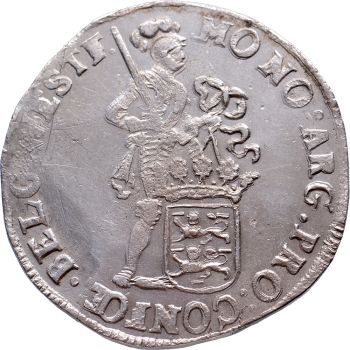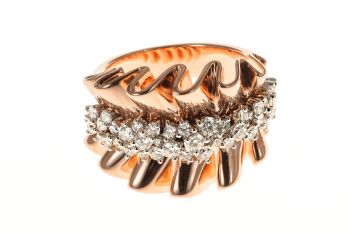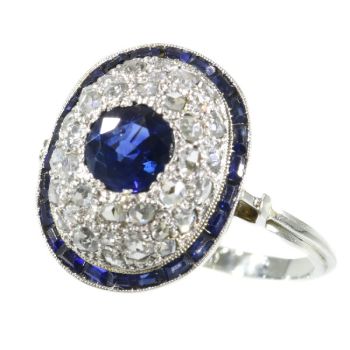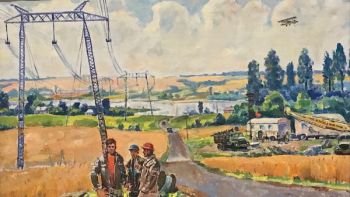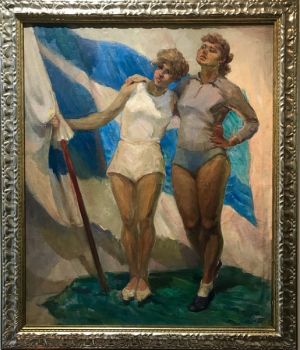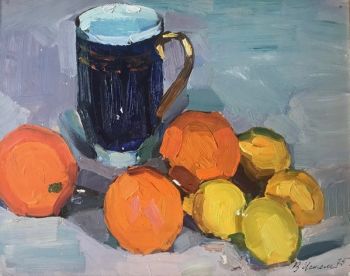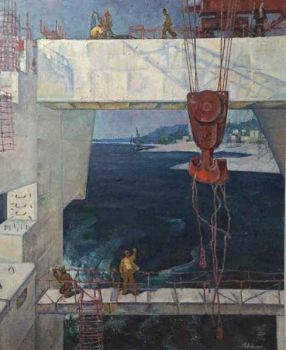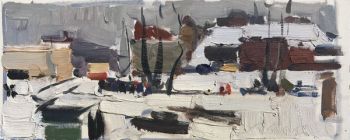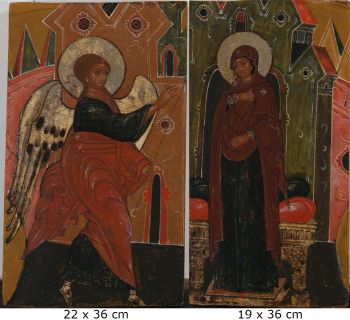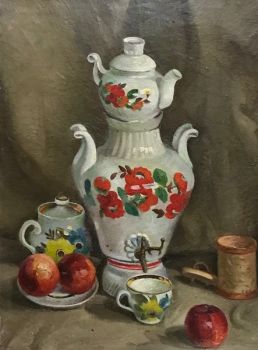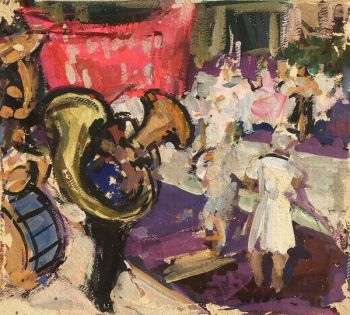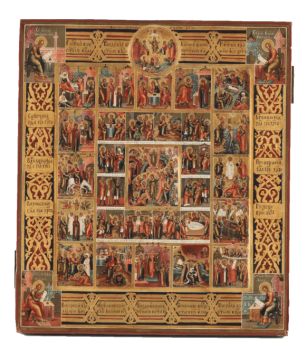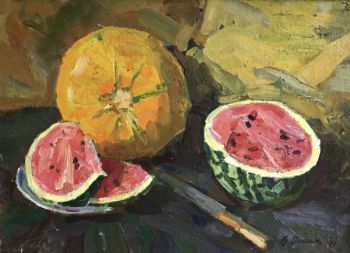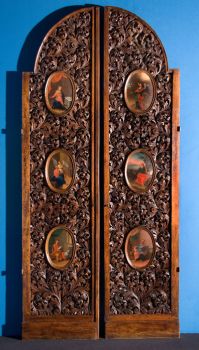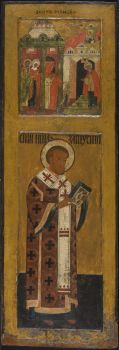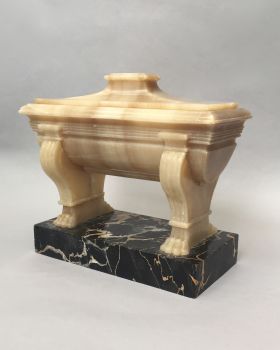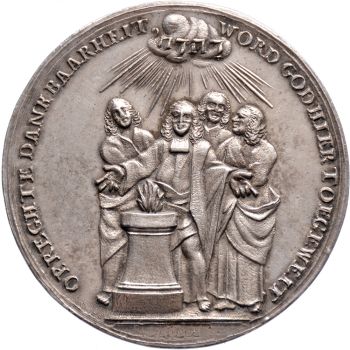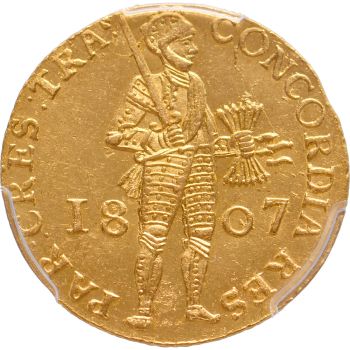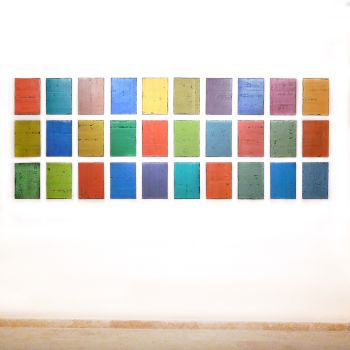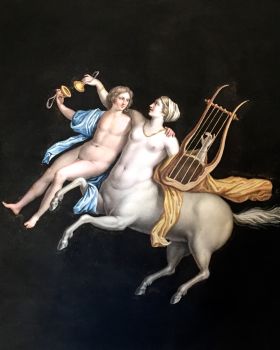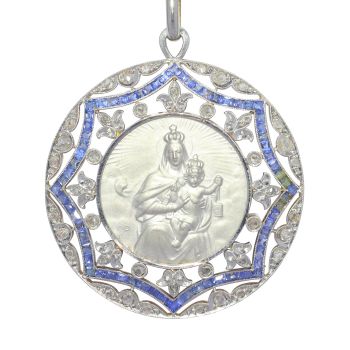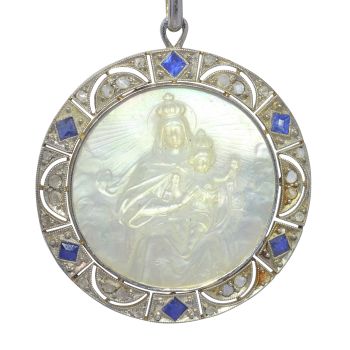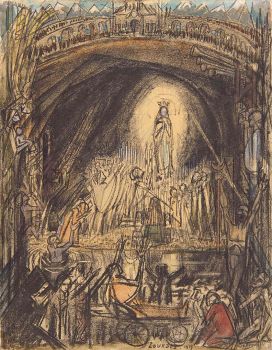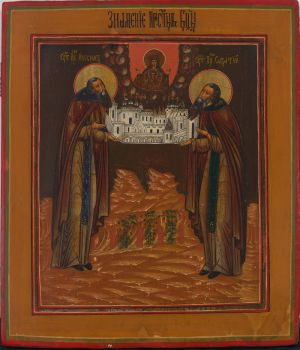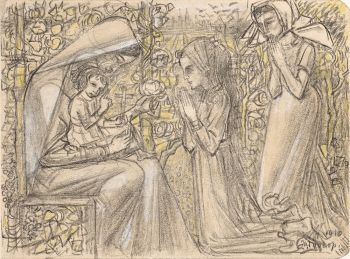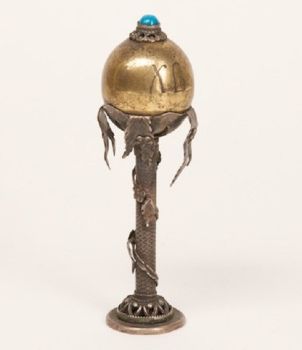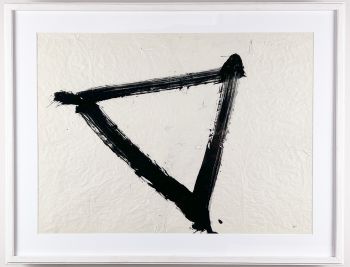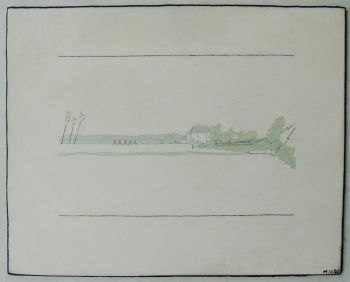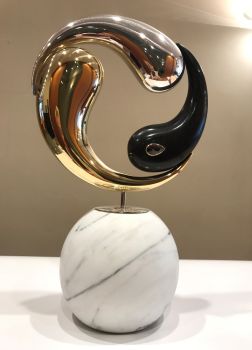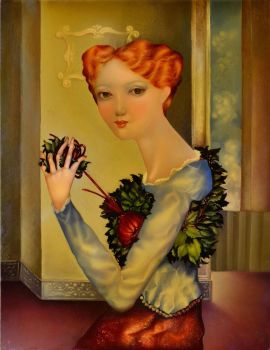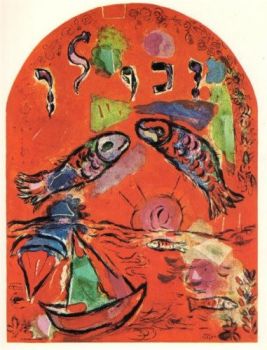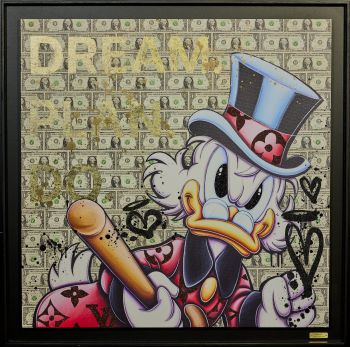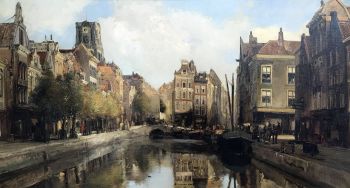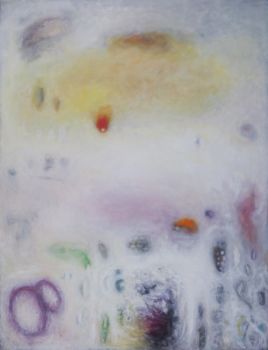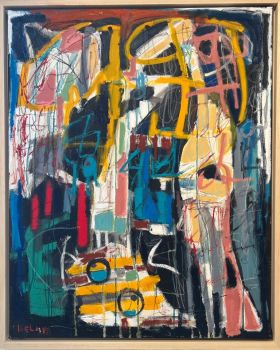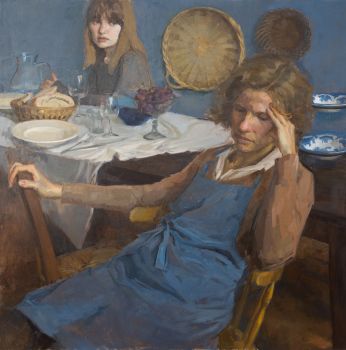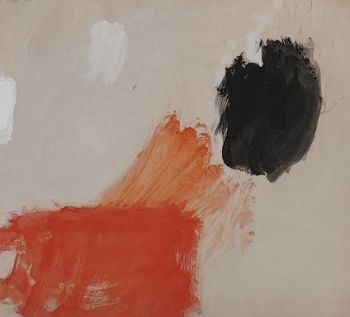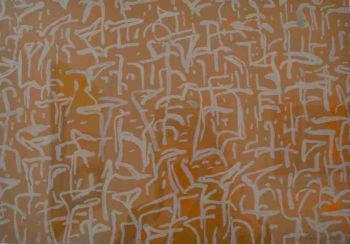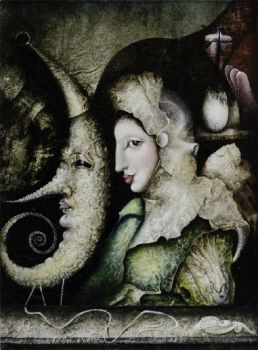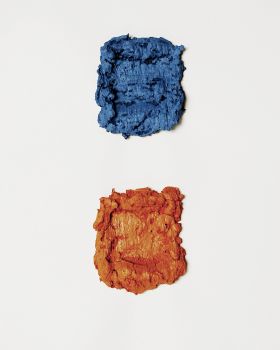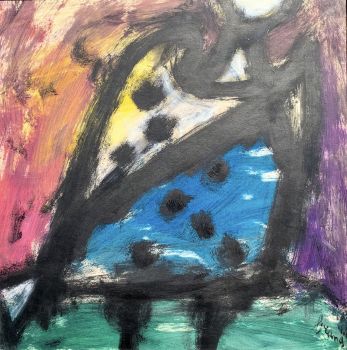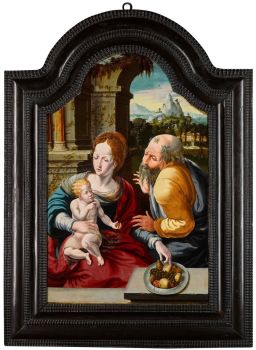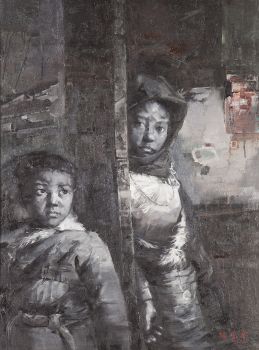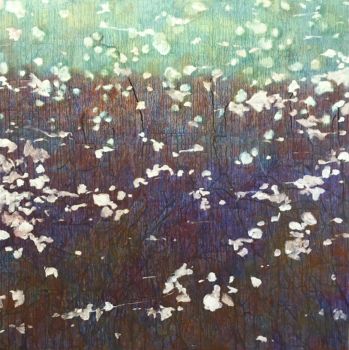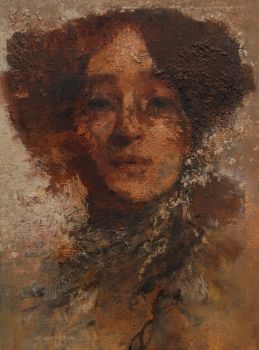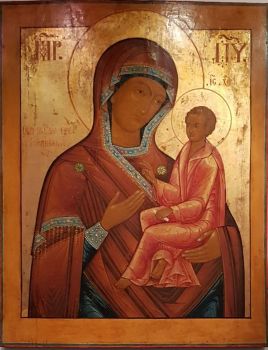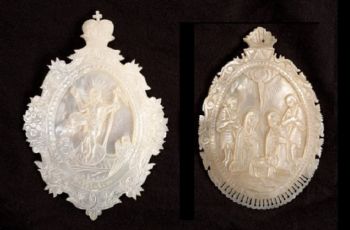Ícone da Rússia Central: Pokrov da Mãe de Deus 18th century
Artista Desconhecido
MadeiraTêmpera de ovoPintar
32 ⨯ 27 cm
ConditionExcellent
€ 3.500
Kunsthandel H.W.C. Dullaert Icons
- Sobre arte9332 Central Russian Icon – Pokrov of the Mother of God. This Central Russian icon combines two different events separated in time by a period of four hundred years but celebrated on the same day in the church calendar. According to tradition the vision of the Mother of God was granted only to St. Anthony the Holy Fool (died 956) who is seen gesturing below right. Mary is accompanied by archangels, the twelve apostles, bishops, holy women, monks and martyrs, spreading her veil in protection over the congregation. Below, center, are St. Romanos the Melodist and his choir attended by the Emperor Leo the Wise together with the Empress and the Patriarch of Constantinople. These figures are historical, dating to the 6th century. The icon combines these two events of the 6th and the 10th century both of which took place in the no longer existing Church of Blachernae in Constantinople. The cult and its corresponding image are only found in Russia from the 14th century. The Feast of the Pokrov is celebrated on 14th October (1st Oct. ‘old style’), the day traditionally regarded by Russians as the first day of winter. This Early 18th Century icon is painted in a fine hand most likely in an Old Believers workshop. Egg tempera on levkas on a wooden panel. 32 X 27 cm.
- Sobre artista
Pode acontecer que um artista ou criador seja desconhecido.
Algumas obras não devem ser determinadas por quem são feitas ou são feitas por (um grupo de) artesãos. Exemplos são estátuas dos tempos antigos, móveis, espelhos ou assinaturas que não são claras ou legíveis, mas também algumas obras não são assinadas.
Além disso, você pode encontrar a seguinte descrição:
•"Atribuído a …." Na opinião deles, provavelmente uma obra do artista, pelo menos em parte
• “Estúdio de…” ou “Oficina de” Em sua opinião um trabalho executado no estúdio ou oficina do artista, possivelmente sob sua supervisão
• "Círculo de ..." Na opinião deles, uma obra da época do artista mostrando sua influência, intimamente associada ao artista, mas não necessariamente seu aluno
•“Estilo de…” ou “Seguidor de…” Na opinião deles, um trabalho executado no estilo do artista, mas não necessariamente por um aluno; pode ser contemporâneo ou quase contemporâneo
• "Maneira de ..." Na opinião deles, uma obra no estilo do artista, mas de data posterior
•"Depois …." Na opinião deles uma cópia (de qualquer data) de uma obra do artista
• “Assinado…”, “Datado…” ou “Inscrito” Na opinião deles, a obra foi assinada/datada/inscrita pelo artista. A adição de um ponto de interrogação indica um elemento de dúvida
• "Com assinatura ….”, “Com data ….”, “Com inscrição ….” ou “Tem assinatura/data/inscrição” na opinião deles a assinatura/data/inscrição foi adicionada por outra pessoa que não o artista
Você está interessado em comprar esta obra de arte?
Artwork details
Related artworks
- 1 - 4 / 12
 Com curadoria de
Com curadoria deGallerease Magazine
Artista Desconhecido
Ícone russo representando um Deesis estendido1600 - 1650
Preço em pedidoKunsthandel H.W.C. Dullaert Icons
Artista Desconhecido
UITGEBREIDE FEESTDAGENIKOON MET PASSIECYCLUS19th century
Preço em pedidoHeutink Ikonen
1 - 4 / 24Artista Desconhecido
Ícone de madeira monumental: São Nicolau de Mozaisk1600 - 1650
Preço em pedidoKunsthandel H.W.C. Dullaert Icons
Artista Desconhecido
Ícone russo representando um Deesis estendido1600 - 1650
Preço em pedidoKunsthandel H.W.C. Dullaert Icons
Artista Desconhecido
UITGEBREIDE FEESTDAGENIKOON MET PASSIECYCLUS19th century
Preço em pedidoHeutink Ikonen
1 - 4 / 24Artista Desconhecido
UITGEBREIDE FEESTDAGENIKOON MET PASSIECYCLUS19th century
Preço em pedidoHeutink Ikonen
Artista Desconhecido
Ícone de madeira monumental: São Nicolau de Mozaisk1600 - 1650
Preço em pedidoKunsthandel H.W.C. Dullaert Icons
Artista Desconhecido
Ícone russo representando um Deesis estendido1600 - 1650
Preço em pedidoKunsthandel H.W.C. Dullaert Icons
Artista Desconhecido
Silver Russian Presentation Easter Egg1880 - 1899
Preço em pedidoH.W.C. Dullaert Art & Antiques Dealer
1 - 4 / 24Gijsbertus Jan Sijthoff
Interior scene with a woman doing needlework1890 - 1920
Preço em pedidoVan der Aalst Fine Art
1 - 4 / 24Artista Desconhecido
Ícone de madeira monumental: São Nicolau de Mozaisk1600 - 1650
Preço em pedidoKunsthandel H.W.C. Dullaert Icons
1 - 4 / 12

